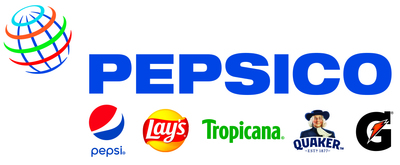PepsiCo, USAID Launch Five-Year, $20 Million Partnership to Empower Women in Agriculture
PepsiCo announced a $20 million partnership with USAID under the Women’s Global Development and Prosperity Initiative to empower women in agriculture. Each will invest $5 million initially to support women-owned enterprises in Asia, the Middle East, and Latin America. The initiative aims to improve women's access to resources and enhance food production, potentially feeding 150 million people. The partnership builds on prior successful efforts in West Bengal, targeting over 300,000 women. PepsiCo expects increased productivity and sustainability across its supply chain as a result.
- The partnership with USAID is expected to bolster PepsiCo's sustainable sourcing strategy.
- Investment in women-led enterprises may enhance supply chain resilience and productivity.
- Targeting over 300,000 women in West Bengal indicates strong community engagement.
- None.
Insights
Analyzing...
PURCHASE, N.Y., Sept. 9, 2020 /PRNewswire/ -- PepsiCo (NASDAQ: PEP) announced a new five-year,
According to the Food and Agriculture Organization, if women farmers had the same access to resources as their male counterparts, their food production would increase by up to
To help address these challenges, USAID and PepsiCo will each invest an initial
"At USAID, we believe that investing in women is key to advancing a country along its journey to self-reliance. The full economic inclusion of half the world's population ultimately will contribute to greater peace and prosperity for all. However, we cannot do this important work without collaborating with the private sector. Through the W-GDP Fund, our partnership with PepsiCo will promote economic opportunities and leadership roles for women farmers," said USAID Acting Administrator John Barsa.
This partnership builds on the lessons learned from PepsiCo and USAID's recent project in West Bengal, which helps women lease land, as well as provides trainings on a broad range of topics including record keeping and pest control, the best irrigation and crop rotation techniques for their region, and the role of women in agriculture and the cultural norms that hold them back. Ultimately, it is expected that the training program in West Bengal will reach more than 300,000 women through direct and community engagement.
"We are thrilled to again partner with USAID to further create more opportunities for women to take on leadership roles in their communities," said Christine Daugherty, VP, Global Sustainable Agriculture & Responsible Sourcing, PepsiCo. "We expect that by engaging women as critical partners, on-farm productivity will increase, compliance with our sustainability standards will improve, supply chain performance will be strengthened, and we will contribute to the long-term resilience of farming communities and PepsiCo's success. After all, we know that women make up nearly half of the agricultural workforce and by investing in women, we can have a greater impact."
PepsiCo will integrate findings from this partnership into its Sustainable Farming Program, advancing positive social, environmental and economic outcomes among the farmers from which the company directly sources crops. Both organizations hope this project will demonstrate the business case for a gender-inclusive supply chain and serve as a catalyst for change as other food and beverage companies look for new ways to increase productivity.
About PepsiCo
PepsiCo products are enjoyed by consumers more than one billion times a day in more than 200 countries and territories around the world. PepsiCo generated more than
Guiding PepsiCo is our vision to Be the Global Leader in Convenient Foods and Beverages by Winning with Purpose. "Winning with Purpose" reflects our ambition to win sustainably in the marketplace and embed purpose into all aspects of the business. For more information, visit www.pepsico.com.
About the W-GDP Initiative
In February 2019, the White House established the Women's Global Development and Prosperity (W-GDP) Initiative, the first whole-of-government approach to women's economic empowerment. W-GDP seeks to reach 50 million women in the developing world by 2025 by focusing on three pillars – Women Prospering in the Workforce, Women Succeeding as Entrepreneurs and Women Enabled in the Economy. W-GDP leverages a new innovative fund, scaling private-public partnerships which address the three pillars. In its first year alone, W-GDP programs reached 12 million women across the globe.
About USAID
The United States Agency for International Development (USAID) is the world's premier international development agency and a catalytic actor driving development results. USAID's work advances U.S. national security and economic prosperity, demonstrates American generosity, and promotes a path to recipient self-reliance and resilience.
PepsiCo Cautionary Statement
Statements in this release regarding PepsiCo that are "forward-looking statements" are based on currently available information, operating plans and projections about future events and trends. Forward-looking statements inherently involve risks and uncertainties. For information on certain factors that could cause actual events or results to differ materially from expectations, please see PepsiCo's filings with the Securities and Exchange Commission, including its most recent annual report on Form 10-K and subsequent reports on Forms 10-Q and 8-K. Investors are cautioned not to place undue reliance on any such forward-looking statements, which speak only as of the date they are made. PepsiCo undertakes no obligation to update any forward-looking statements, whether as a result of new information, future events or otherwise.
![]() View original content to download multimedia:http://www.prnewswire.com/news-releases/pepsico-usaid-launch-five-year-20-million-partnership-to-empower-women-in-agriculture-301126392.html
View original content to download multimedia:http://www.prnewswire.com/news-releases/pepsico-usaid-launch-five-year-20-million-partnership-to-empower-women-in-agriculture-301126392.html
SOURCE PepsiCo, Inc.






